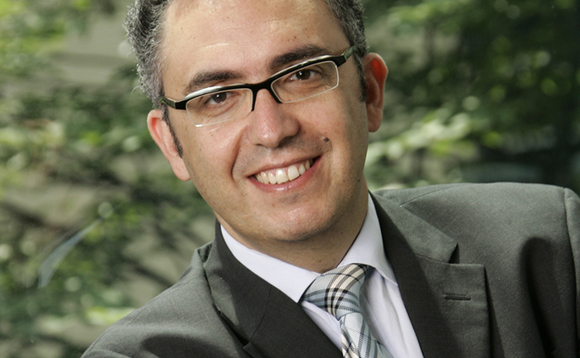
Q&A: Montefiore's Eric Bismuth on the French mid-market

Strategies, opportunities, fundraising... Eric Bismuth, president of mid-cap buyout house Montefiore Investment, talks to Greg Gille about the state of the French mid-market.
How can private equity help French mid-market businesses reach the next stage of growth and value-creation?
The SME segment is clearly the most dynamic in the French economy, accounting for two thirds of GDP growth and three quarters of jobs created. The management is probably of better quality than in most European markets: creative, reactive and benefiting from a skilled and loyal workforce. However, French SMEs also suffer from weaknesses: lack of scale in most markets, insufficient focus and specialisation, limited investment in R&D and marketing and low internationalisation.
Private equity can help these companies in two ways. One is facilitating the large-scale shift of ownership and management, as baby boomers retire en-masse. Most private equity firms do this. The other way private equity can help SMEs is to help them reach a different stage of development. This may require new investments in technologies and brands, access to new channels, development and launch of new products or services, entering into new international markets, plus one or more add-on acquisitions, as well as a significant reinforcement of the management team, We do this at Montefiore Investment, with a portfolio of companies that grow on average by 20% per year, half organically and half through acquisitions. Despite a sluggish global economy, we transform these companies into national and European champions.
This approach is fairly unique, in particular because the skills required in order to implement it successfully are different from the ones of most private equity firms.
In which sector(s) do you see the strongest opportunities at the moment?
Most people would answer on a short-term basis. The sectors that enjoy the strongest recovery at the moment are the cyclical businesses, in particular industrial goods and equipment. Why? Because they have been the most strongly impacted by the crisis, and therefore those that survive benefit both from a substantial recovery in demand and lower competition.
Now, let's take a broader perspective. Beyond these short-term considerations, most of these French businesses suffer from strong international competition, their business models are structurally fragile, and their long-term growth potential is questionable, unless they have taken significant positions in emerging markets. On the other hand, the locally supplied services sector (LSS) on which we focus benefits from a softer recovery, because they have been much more resilient, and offer the best long-term prospects.
A large proportion of mid-cap deals are secondary buyouts so far this year - why is this? And do you think there are still good primary transactions to be found in the mid-market?
It is true that the majority of mid-cap transactions above €150m this year have been secondary transactions. This is interesting because when you talk with private equity firms, most pretend to be very active on the primary market, so there must be a disconnect somewhere. However, for transactions below €150m in EV, primary transactions account for a much higher proportion. All the companies in our portfolio except B&B Hotels are primary transactions. We do believe there are great opportunities in this segment, but this requires much more work at all steps of the investment process: sourcing, screening, assessing, transforming and monitoring. I can understand it is much more comfortable to follow a similar financial investor, but that's not where we see our biggest added value.
The mid-cap fundraising market is said to be quite crowded at the moment. In your view, how can GPs stand out from the crowd and attract LPs?
After two very quiet years, the fund raising market is back, and LPs are eager to find attractive investment opportunities. But the situation is radically different from the pre-crisis period. The crisis has been a great test to assess the quality of teams, their strategies, their ability to manage risk, and their true added value. The track records are much more polarised, with clear winners and losers.
Most private equity firms have changed their sales pitch to meet the new expectations of the LPs. I do not think this is an appropriate response. We believe demonstrating consistency in strategy and performance regardless of the environment is the best answer. And mature LPs are smart and informed enough to distinguish nice speeches from reality and identify today's winners.
Latest News
Stonehage Fleming raises USD 130m for largest fund to date, eyes 2024 programme
Sponsor acquired the public software group in July 2017 via the same-year vintage Partners Group Global Value 2017
Stonehage Fleming raises USD 130m for largest fund to date, eyes 2024 programme
Czech Republic-headquartered family office is targeting DACH and CEE region deals
Stonehage Fleming raises USD 130m for largest fund to date, eyes 2024 programme
Ex-Rocket Internet leader Bettina Curtze joins Swiss VC firm as partner and CFO
Stonehage Fleming raises USD 130m for largest fund to date, eyes 2024 programme
Estonia-registered VC could bolster LP base with fresh capital from funds-of-funds or pension funds








